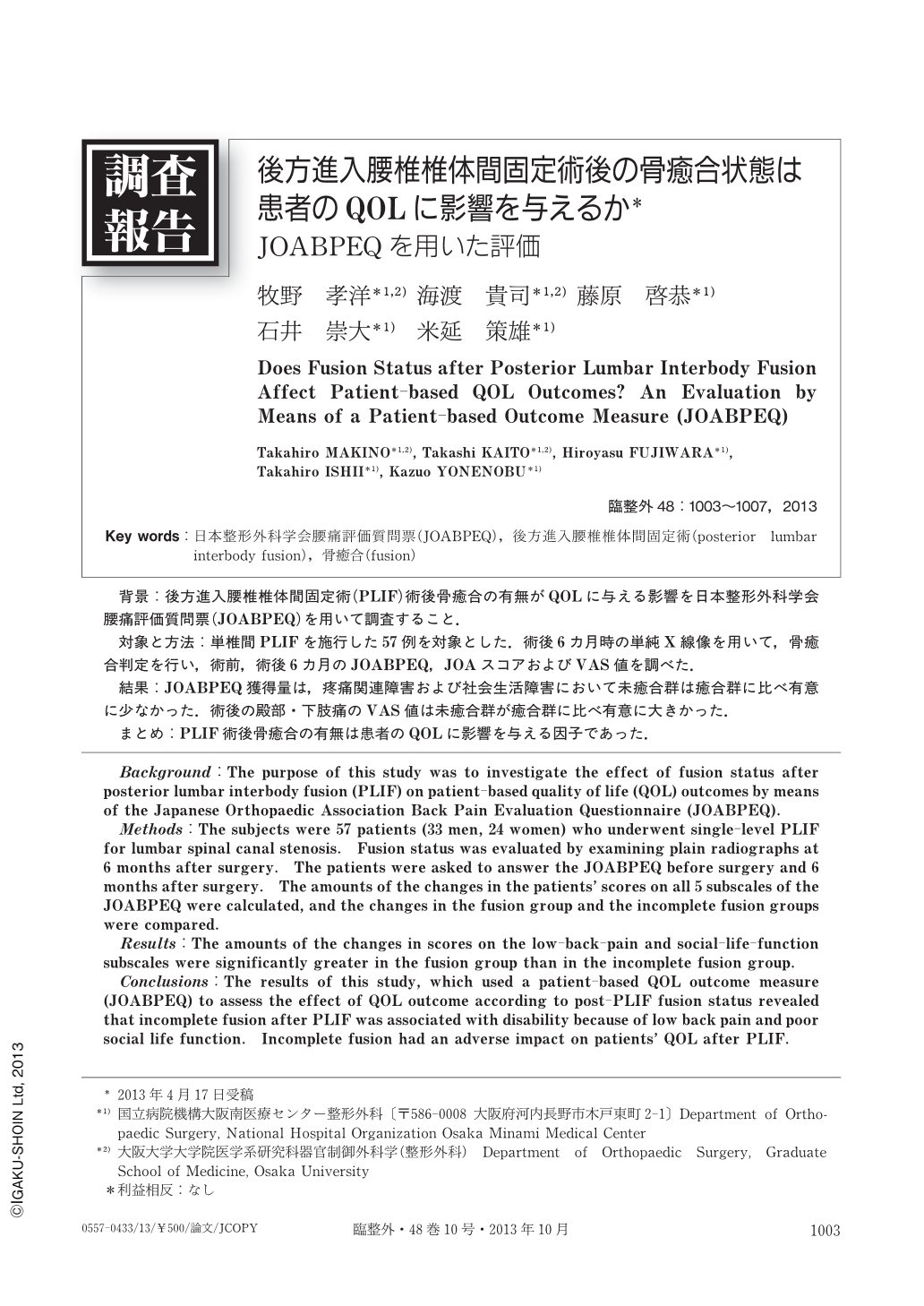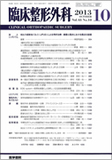Japanese
English
- 有料閲覧
- Abstract 文献概要
- 1ページ目 Look Inside
- 参考文献 Reference
背景:後方進入腰椎椎体間固定術(PLIF)術後骨癒合の有無がQOLに与える影響を日本整形外科学会腰痛評価質問票(JOABPEQ)を用いて調査すること.
対象と方法:単椎間PLIFを施行した57例を対象とした.術後6カ月時の単純X線像を用いて,骨癒合判定を行い,術前,術後6カ月のJOABPEQ,JOAスコアおよびVAS値を調べた.
結果:JOABPEQ獲得量は,疼痛関連障害および社会生活障害において未癒合群は癒合群に比べ有意に少なかった.術後の殿部・下肢痛のVAS値は未癒合群が癒合群に比べ有意に大きかった.
まとめ:PLIF術後骨癒合の有無は患者のQOLに影響を与える因子であった.
Background:The purpose of this study was to investigate the effect of fusion status after posterior lumbar interbody fusion (PLIF) on patient-based quality of life (QOL) outcomes by means of the Japanese Orthopaedic Association Back Pain Evaluation Questionnaire (JOABPEQ).
Methods:The subjects were 57 patients (33 men, 24 women) who underwent single-level PLIF for lumbar spinal canal stenosis. Fusion status was evaluated by examining plain radiographs at 6 months after surgery. The patients were asked to answer the JOABPEQ before surgery and 6 months after surgery. The amounts of the changes in the patients' scores on all 5 subscales of the JOABPEQ were calculated, and the changes in the fusion group and the incomplete fusion groups were compared.
Results:The amounts of the changes in scores on the low-back-pain and social-life-function subscales were significantly greater in the fusion group than in the incomplete fusion group.
Conclusions:The results of this study, which used a patient-based QOL outcome measure (JOABPEQ) to assess the effect of QOL outcome according to post-PLIF fusion status revealed that incomplete fusion after PLIF was associated with disability because of low back pain and poor social life function. Incomplete fusion had an adverse impact on patients' QOL after PLIF.

Copyright © 2013, Igaku-Shoin Ltd. All rights reserved.


